
Contraception
Hormonal contraception is a great way to prevent pregnancy, but knowing which type to opt for can be a little confusing. Whether it’s hormonal pills, patches, injections, implants or Intra-Uterine Devices (IUD) they all work in a similar way by stopping ovulation, changing the cervical mucus and making your uterus less hospitable to pregnancy. You can find hormonal contraception that contains both oestrogen and progesterone, or just progesterone alone. Let’s explore your options and ensure you’re well-informed about managing your contraceptive needs.
Contraception Treatments
 Desogestrel 75mcg Tablets£19.99
Desogestrel 75mcg Tablets£19.99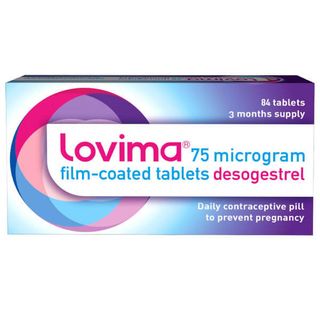
Lovima 75mcg Tablets
Lovima 75mcg Tablets£9.95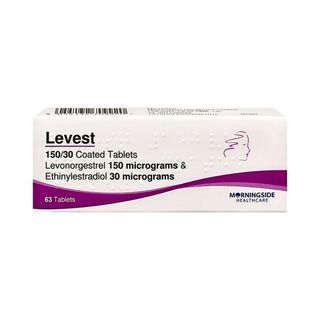
Levest
Levest£19.99
Desorex Pill
Desorex Pill£19.99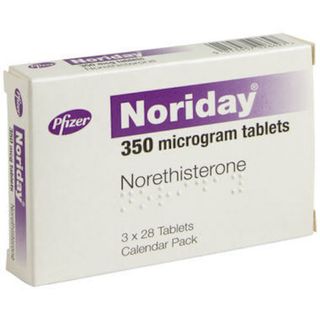
Noriday Tablets
Noriday Tablets£19.99
Cerelle
Cerelle£19.99
Rigevidon Tablets
Rigevidon Tablets£20.99
Microgynon & Microgynon ED
Microgynon & Microgynon ED£1.35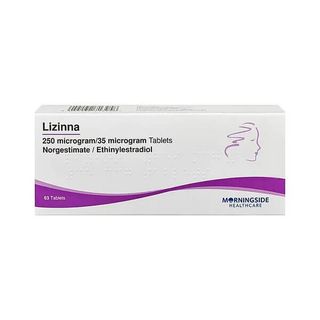
Lizinna Tablets
Lizinna Tablets£19.99
Cerazette Tablets
Cerazette Tablets£26.99
Zoely Tablets
Zoely Tablets£35.99
Yasmin Tablets
Yasmin Tablets£33.99
Lucette
Lucette£24.99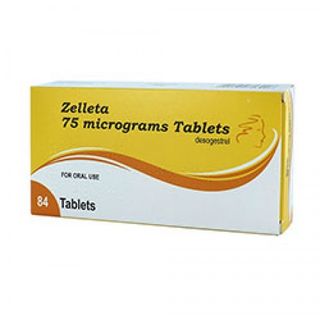
Zelleta
Zelleta£19.99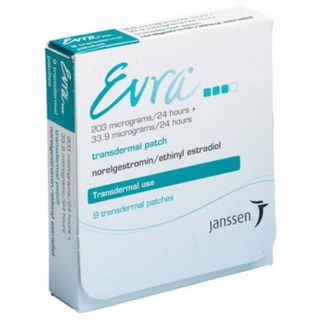
Evra Patches
Evra Patches£31.99
Gedarel Tablets (20 & 30)
Gedarel Tablets (20 & 30)£1.35
Eloine Tablets
Eloine Tablets£32.99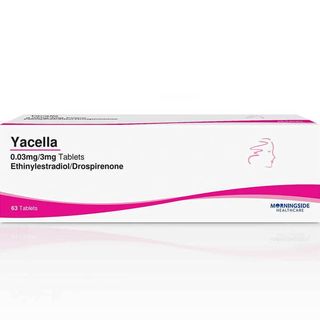
Yacella Tablets
Yacella Tablets£23.99
Cilique Pill
Cilique Pill£19.99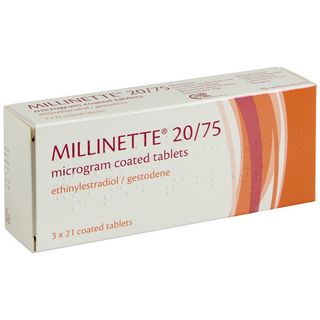
Millinette Tablets (20 & 30)
Millinette Tablets (20 & 30)£1.35
Brevinor Tablets
Brevinor Tablets£19.99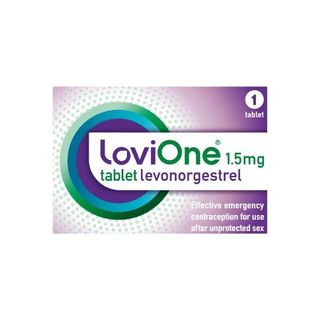
LoviOne Emergency Contraception 1.5mg Levonorgestrel Tablet
LoviOne Emergency Contraception 1.5mg Levonorgestrel Tablet£12.99
Femodene & Femodene ED
Femodene & Femodene ED£1.35
Norgeston Tablets
Norgeston Tablets£19.99
Femodette Tablets
Femodette Tablets£22.99
NuvaRing
NuvaRing£46.99
Mercilon Tablets
Mercilon Tablets£22.99
Logynon & Logynon ED
Logynon & Logynon ED£14.99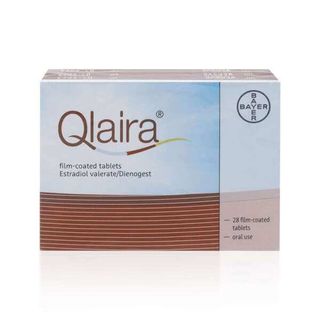
Qlaira Tablets
Qlaira Tablets£38.99
Ovranette Tablets
Ovranette Tablets£19.99
Slynd 4mg
Slynd 4mg (Drospirenone) Oestrogen-Free Birth Control Pill£29.99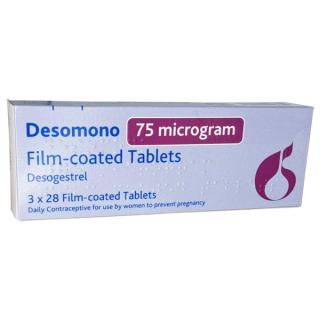
Desomono 75mcg Tablets
Desomono 75mcg Tablets£21.99
SyreniRing
SyreniRing£42.99
Bimizza Contraceptive Pill
Bimizza Contraceptive Pill£28.99
Maexeni Contraceptive Pill
Maexeni Combined Contraceptive Pill£19.99- Out Of Stock

Feanolla
Feanolla£9.99 - Out Of Stock
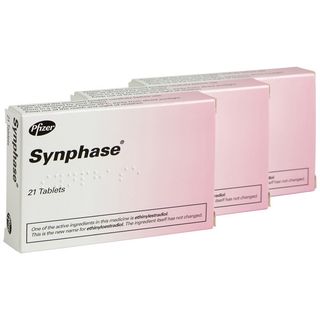
Synphase Tablets
Synphase Tablets£21.99 - Out Of Stock

Katya Pill
Katya Pill£9.99
Start your assessment for Contraception
Don't wait to get the medical help you need.
Once you complete a short online assessment about your condition, you will be able to select your preferred treatment and quantity from a list of appropriate options for you.
- Reviewed by our UK-based medical team
- Takes less than 3 minutes to complete
- Approved treatments dispatched same day (before 3pm)
Ordering as easy as 1, 2, 3
1. Find the ideal treatment
2. Get a free consultation
3. Enjoy speedy delivery
Advice for Contraception
About the Contraceptive Pill
Oral contraception (‘The Pill’) is a tablet to prevent pregnancy. There are several different types of oral contraceptive pill, which use the synthetic hormones oestrogen and progestogen to prevent pregnancy in one (or more) of three ways.
- They prevent a woman from ovulating. Ovulation is the release of an egg from the ovaries.
- They change a woman’s cervical mucus making it difficult for sperm to reach an egg.
- They make a woman’s womb inhospitable to prevent a fertilized egg from “implanting”. Implantation is the attaching of the egg to the lining of the uterus.
How effective is the Contraceptive Pill?
An oestrogen and progestogen pill (the combined pill) is the most common type of contraceptive pill prescribed by doctors, and when taken properly it has a 99.9% effective rate in preventing pregnancy. A mini-pill (with only progestogen), when taken as prescribed has a 95% effective rate in preventing pregnancy.
Emergency contraception is taken within three days of unprotected sex and prevents pregnancy by not allowing a fertilised egg to implant in the womb.
Benefits Of Oral Contraception
The medical community is in agreement that the contraceptive pill is safe for the majority of women to use for birth control with few or no side effects. Some of the benefits of taking the pill are:
- Easy and convenient contraceptive method.
- Highly effective in preventing pregnancy.
- Lighter periods and also less cramping, bloating, and irritability that often associated with normal menstruation.
- Does not interfere with sexual intercourse.
- May provide some protection from pelvic inflammatory disease which, if left untreated, can lead to infertility.
Other benefits that some birth control pills offer are, clearing up hormonal acne, less severe cramping and lighter periods. These additional benefits will depend on the specific type of pill you take.
Side Effects Of Birth Control pills
The most common side effects of using contraceptive tablets are nausea, weight gain, sore, swollen breasts and spotting between periods. Most of these symptoms are mild and oftentimes go away with continued use of the pill.
There are more severe side effects associated with oral contraception like abdominal pain, severe headaches and/or blurry vision and swelling or aching in the legs. You should stop taking the pill immediately if you experience any of these symptoms and consult your doctor.
Who Should Not Use The Contraceptive Pill?
If you have any history of blood clots, have ever had breast cancer, are pregnant, or have any history of heart problems of any kind, you should not take contraceptive tablets. If you smoke, you may need to avoid oral contraception as well, since this increases the risk of developing blood clots.
Does The Contraceptive Pill prevent STDs?
Oral contraception does not protect against sexually transmitted diseases like gonorrhoea, HIV or herpes. Only using a condom is effective in preventing the transmission of these diseases during sexual intercourse.
Choosing The Best Contraceptive Pill
All oral contraception for birth control is by prescription only and should be taken under a doctor’s direction. It is important to disclose your full medical history to your physician when deciding which contraceptive pill is right for you.
Deciding on the correct birth control pill for you should be a joint decision between you and your doctor. There are many variables in both the contraceptive pills and your lifestyle that should be taken into account to choose the Pill that is most suited to you.
You should never start taking a contraceptive pill without the advice of your doctor. Different contraceptive pills are suitable for different situations and all carry some form of risk and thus should only be started after a thorough check-up from your doctor.
An Outline of the Contraceptive Pills
Oral contraceptive pills are normally taken once daily at the same time each day. This is particularly important for some contraceptive pills, which need to be taken within a 3-hour window otherwise contraceptive cover is lost. Most contraceptive pills will involve a 21-day cycle followed by a 7-day break before restarting, whereas others are taken continuously throughout the cycle. Check the individual instructions for each contraceptive pill for specific information on each.
Remember you should never take a contraceptive pill that has not been prescribed for you by your doctor. It is important that you only take your contraceptive pill for as long as is advised by your doctor and you have a pill review, including a blood pressure test, at least yearly.
At The Independent Pharmacy we are able to offer women repeat supplies of the contraceptive pill that they have been previously prescribed by their GP. We are also able to provide advance supplies of emergency contraception, if appropriate, to allow you to be prepared should a contraceptive accident occur.
The Independent Pharmacy is able to make repeat supplies of your current contraceptive pill from the following list:
Brevinor, Cerazette, Cerelle, Desogestrel 75mcg, Feanolla, Femodette, Femodene, Femodene ED, Gedarel 20/150, Gedarel 30/150, Logynon, Logynon ED, Lovima, Mercilon, Microgynon, Microgynon ED, Norgeston, Noriday, Ovranette, Rigevidon, Synphase, Yasmin, Zelleta.
Types of Contraceptive Pill
Combined Oral Contraceptives
Monophasic 21-day preparations
Brands include: Gedarel, Cilique, Mercilon, Femodette, Levest, Lucette, Marvelon, Yasmin, Femodene, Microgynon, Ovranette, Rigevidon, Brevinor, Ovysmen, Norimin.
Active ingredients: Oestrogens and Progestogens (see individual packs for specific hormones).
How to take Monophasic 21-day Contraceptive Pills
- Start your packet of pills with the first pill marked with the correct day of the week.
- Continue taking one pill at the same time each day, working your way around the pack until it is finished.
- You should then have a 7-day break when you will have your period.
- You should then start your new pack of pills on the 8th day (this will be the same day that you started your last new pack).
Monophasic 28-day ‘Every day’ preparations
Brands include: Femodene ED, Microgynon ED.
Active ingredients: Oestrogens and Progestogens (see individual packs for specific hormones)
How to take Monophasic 28-day ‘Every day’ contraceptive pills:
- Start your packet of pills with the first active pill usually marked ‘start’.
- Continue taking one pill at the same time each day, working your way around the pack until it is finished after 28 days.
- You should have your period during the last 7 days of your pack when you are taking the inactive pills.
- You should start your new pack of pills the day after taking the last inactive pill of the previous pack.
Phasic 21-day preparations
Brands include: Logynon, Binovum, Synphase, Trinovum.
Active ingredients: Oestrogens and Progestogens (see individual packs for specific hormones)
How to take Phasic 21-day Contraceptive Pills
- Start your packet of pills with the first pill of the first colour.
- Continue taking one pill at the same time each day, working your way around the pack until it is finished.
- You should then have a 7-day break when you will have your period.
- You should then start your new pack of pills on the 8th day (this will be the same day that you started your last new pack).
Phasic 28-day ‘Every day’ preparations
Brands include: Logynon ED
Active ingredients: Oestrogens and Progestogens (see individual packs for specific hormones)
How to take Phasic 28-day ‘Every day’ contraceptive pills:
- Start your packet of pills with the first active pill usually marked ‘start’.
- Continue taking one pill at the same time each day, working your way around the pack until it is finished after 28 days.
- You should have your period during the last 7 days of your pack when you are taking the inactive pills.
- You should start your new pack of pills the day after taking the last inactive pill of the previous pack.
Progestogen-Only Oral Contraceptives
Brands include: Cerazette, Femulen, Micronor, Norgeston, Noriday, Zelleta, Feanolla, Cerelle, & generic desogestrel.
Active ingredients: Progestogen (see individual packs for specific hormone)
How to take progestogen-only contraceptive pills:
- Start your packet of pills with the first pill at a convenient time of day.
- Continue taking one pill at the same time each day within a 3-hour window (12 hours for Cerazette), working your way around the pack until it is finished after 28 days.
- Your pill may affect your period; it can stop, become lighter or irregular.
- You should start your new pack of pills the day after taking the last pill of the previous pack.
Advice On Different Contraceptive Methods
Different types of contraception and how they work
Depending on the type you choose, contraception prevents STIs and pregnancy in various ways.
Pills or hormonal contraceptives are the most popular contraceptive method among women. Birth control pills are taken orally and emit a low dose of synthetic hormones that suppress ovulation and inhibit the movement of sperm and the implantation of eggs. All of these actions lead to a significantly reduced chance of becoming pregnant following unprotected intercourse. There are numerous contraceptive pills available on the market to suit each woman’s individual circumstances. Some may be taken every day and will stop your periods whilst others are taken in cycles with a regular period in between. Oral contraceptives by themselves do not prevent against STIs and should be used in conjunction with a barrier method. Oral hormonal contraceptives have the advantage that they can be taken every day and do not require any interruption during sex.
In the event of barrier or hormonal birth control failure, there also exist morning-after pills, which are single pills, taken orally, that can prevent pregnancy for up to five days after the event of unprotected sex. Emergency contraception (EC) can inhibit implantation and delay ovulation if it has not already occurred. Emergency contraception is ineffective against an egg that has already implanted. This means that emergency contraception must be taken as soon as possible, but within 72 hours and 120 hours for Levonelle and EllaOne respectively. Emergency contraception should only be used when regular methods of contraception, such as barrier methods like condoms, have failed and there is a risk that unprotected sex has occurred. Emergency contraception should not be used regularly as a first line form of contraception.
Barrier methods like condoms are some of the most popular choices in family planning. With a barrier method, the contraceptive device acts as a literal barrier between egg and sperm. This means that as well as helping to prevent pregnancy, if used properly, they can reduce the risk of STIs as well. Condoms and other barrier methods carry the advantage that they do not need to be incorporated into your daily routine and can be used as and when required.
There are also other methods of contraception such as the contraceptive injection, the contraceptive implant, an IUD (coil) or a diaphragm. If the above methods of contraception are unsuitable or undesirable you can speak to your local GP surgery or sexual health clinic about the other forms of contraception available.
Alternatives
Non-medicinal contraceptive alternatives
- Female Condoms - Not only do they prevent pregnancy they also prevent STIs. There is currently only one brand available in the UK, called Femidom. Shown to be 95% effective.
- Male Condoms - Prevent pregnancy and also prevent STIs. Shown to be 98% effective.
FAQs for Contraception
What is in the Contraceptive Pill?
Contraceptive pills contain one or more female hormones known as oestrogens and progestogens. Each type of hormone provides contraception in a different way and is suitable for different people.
The contraceptive pill can be divided in to two broad groups. The combined pill commonly known as “the pill” contains two different hormones, oestrogen and progesterone. The ‘mini pill’ contains only the hormone progesterone. It is a good choice when the combined pill is not appropriate or in certain other circumstances that can be identified by your GP.
What makes the Pill a good Contraceptive choice?
The contraceptive pill has helped many women enjoy sex without the worry of unwanted pregnancy for many years. It is very effective, if taken correctly it has a 99% success rate, and it also doesn't reduce fertility in the long term. The combined contraceptive pill also has other added health benefits; it can reduce the incidence of acne, make periods lighter, pain free and reduce spotting. There is also evidence to suggest it can reduce the risk of cancer in the womb and ovaries.
Can you get pregnant the first time you have sex?
Yes, you can become pregnant any time you have sex, even from your first time. If you are thinking about having sex for the first time, you should visit your GP or local GUM clinic to discuss contraceptive options to ensure you have contraceptive cover.
Is withdrawing the penis before ejaculation a good form of Contraception?
The withdrawal method is when the male removes the penis before ejaculation. Sperm can be present in lubricating fluids (pre-ejaculate) before ejaculation and in the heat of the moment it can be difficult to withdraw at the right time. This makes it is an unreliable method of contraception and it should not be attempted.
Apart from the Pill, what other Contraceptive choices are there?
There are implants, a progesterone only injection, contraceptive patches, Inter-Uterine Devices (IUD) and vaginal rings. These are all hormonal contraceptives; they release oestrogen/progesterone slowly to give continued contraceptive cover.
Non-hormonal contraceptives include condoms, dams and caps. Condoms include both the male and female variety (femidom). These contraceptive methods are generally slightly less effective than hormonal methods as they are non always convenient to use and can be used incorrectly/fail on occasions. Male and female condoms have the advantage of protecting against STIs as well as unwanted pregnancy.
It is difficult to know what’s best for you as an individual without professional advice. For help making the right choice you should speak to your pharmacist, GP, contraceptive nurse or local GUM clinic.
If you have sex standing up, will this stop you getting pregnant?
Unfortunately there is no truth in this rumour; the movement of sperm is not affected by gravity. It is possible to get pregnant in any position.
Condoms can split, does that mean the Contraceptive Pill is better?
If used correctly, splitting of condoms is rare. Use a new condom every time you have sex, be careful when opening the packet as not to tear it with fingers or jewellery and make sure it is in date!
Condoms still provide the best protection against STI’s and using one is safer than not using them at all. Combining the pill and using a condom will not only give the best contraception protection it will also protect against STI’s which the pill won't.
Is the rhythm method an effective form of Contraception?
A woman is more fertile during ovulation, which occurs during the middle of her cycle. If your cycles are regular, you can determine when you will be most fertile and avoid sex at this time of the month. However cycles can vary in length and it you can be caught out. It is not advisable to use the rhythm method as a form of contraception.
I have seen a drop in my libido. Can this be from the Pill?
It is rare for the pill to affect your libido. Knowing that you are covered against unwanted pregnancy will help you relax and enjoy the moment and should have a positive effect on your libido.
With so many different pills, which one is the best for me?
Your GP or GUM clinic will talk to you and then assess your individual situation. They will consider different criteria including your age, current state of health, if you are suffering from acne or migraines and if you are taking any other medication. They will discuss the different contraceptive options that are available and the ones most suitable for you. Remember, just because a friend or relative uses one method, it doesn’t mean it is also right for you.
Where do I go to get the Pill?
The pill is available from your GP, contraceptive nurse or local GUM clinic. It is also available online from our Online Pharmacy for women who have taken the same pill for over a year and have had a recent pill check including a blood pressure reading.
Do I have to pay for the Pill or other forms of Contraception?
The contraceptive pill and some other forms of contraception are free to all women on the NHS and they are available from your GP or GUM clinic. You can buy a repeat supply contraceptive pill privately from our Online Pharmacy for speed, convenience and discretion.
I had sex but forgot to take my Pill. Will I be covered or do I need emergency Contraception?
This will depend on the type of contraceptive pill you are taking, how many pills you have missed and what stage of your cycle you are currently in. It may not always be necessary to take emergency contraception. Read the ‘Directions’ tab for your pill above for further information on missed pills. If you are still unsure please feel free to contact us for more information and advice.
Will my Pill be effective if I am taking antibiotics?
It was previously recommended that if you were taking most antibiotics, that you use another form of contraception whilst you were taking them and for 7 days after. Following clinical studies being published that showed no effect on contraceptive cover by most antibiotics, this advice has now been changed. There is no need to use additional contraceptive cover when taking most antibiotics.
The exceptions to this rule are the antibiotics used to treat tuberculosis and meningitis called rifampicin and rifabutin. These are the only types of antibiotic that make the contraceptive pill, and other hormonal contraceptives, less effective. Additional contraceptive methods, such as condoms, should be used during the course of rifampicin or rifabutin and for 7 days after it has finished.
Other forms of contraception like the injection, IUD (Inter Uterine Device) and barrier methods will not be affected.
Apart from antibiotics, what other medication interacts with the Pill?
Some anti-epileptic medication, HIV medication and St John’s Wort all decrease the effectiveness of the pill. You should inform your prescriber of any medicines you take when starting the pill and if you start any new medicine whilst taking the contraceptive pill.
Am I still covered by the Pill if I suffer from vomiting or diarrhoea?
After taking the contraceptive pill, it takes roughly 3 hours for it to be absorbed fully into your system. If you suffer with vomiting or diarrhoea during the 3-hour period after taking your pill, it could mean that it has not been fully absorbed. Depending on the pill you are taking, you may need to follow the same instructions for missed tablets meaning you may not have effective contraceptive cover.
Is it important to take the Pill at the same time each day?
For combined contraceptive pills it does not matter at what time you take the pill, although you should aim to do this at a regular time every day, and missing one pill wont necessarily mean you are not covered.
For progesterone only (mini pills), they need to be taken at the same time each day or within 3 hours of that time (12 hours for Cerazette). Missing a tablet or not taking at the right time may lead to bleeding or lack of contraceptive cover.
What is the best choice of Pill after you have given birth?
After birth, the production of breast milk is 98% effective in preventing pregnancy if it is done every 4 hours (this includes feeding at night). Weaning the baby off milk is a natural trigger to start your periods again.
If you feed but not as often then a progesterone only (mini) pill is recommend as a form of contraception. Alternatively condoms and other non-hormonal methods can also be used.
The combined pill is known to reduce the flow of breast milk and is not recommended when you are breastfeeding. It can be started after you have stopped breast feeding.
If you decide not to breast feed then you need to start the pill 21 days after the birth date. Additional protection is needed for 7 days if you start later than the 21st day to allow the hormone levels build up.
You should always check with your doctor before starting the contraceptive pill or switching between pills.
Is it safe to stay on the Pill for long periods of time?
There used to be theories that taking breaks from the contraceptive pill and not taking it for long periods of time was beneficial. Medical evidence now seems to suggest that in women who don’t smoke, do not have high blood pressure and are not overweight, it is perfectly safe to continue taking the contraceptive pill up until they are 45.
Are there risks involved with taking the Pill?
Yes, as with all medicines, there are small risks attached to taking the contraceptive pill although these are thought to be outweighed by the benefits in younger women.
For some women there will be a small increase in the risk of developing a blood clot, high blood pressure, and breast or cervical cancer. When the pill is stopped these risks generally slowly disappear. However, the contraceptive pill seems to lower the risk of endometrial, ovarian and colon cancer.
If I take the Pill, will it be harder for me to have a family when I stop taking it?
The contraceptive pill does not reduce your fertility and you can conceive once you stop taking it. This is a lot quicker and easier than other forms of hormonal contraception. The injection, another effective form of contraception, can take up to a year to wear off and restore your fertility.
Can I delay my period if I am going on holiday?
If you are taking a combined pill then you can delay your period by starting the next cycle of tablets straight away. For women who are taking the ED version of the combined pill, you will need to omit the remaining 7 inactive pills and start a new packet on the 21 active pills. Your next bleed will be at the end of your next cycle.
You should always check with your GP before using your pill to delay your period and should never run more than 2 packs together consecutively.
Another option for women NOT currently taking the pill is to take Norethisterone 5mg tablets, which available from our Online Pharmacy for up to 17 days period delay.